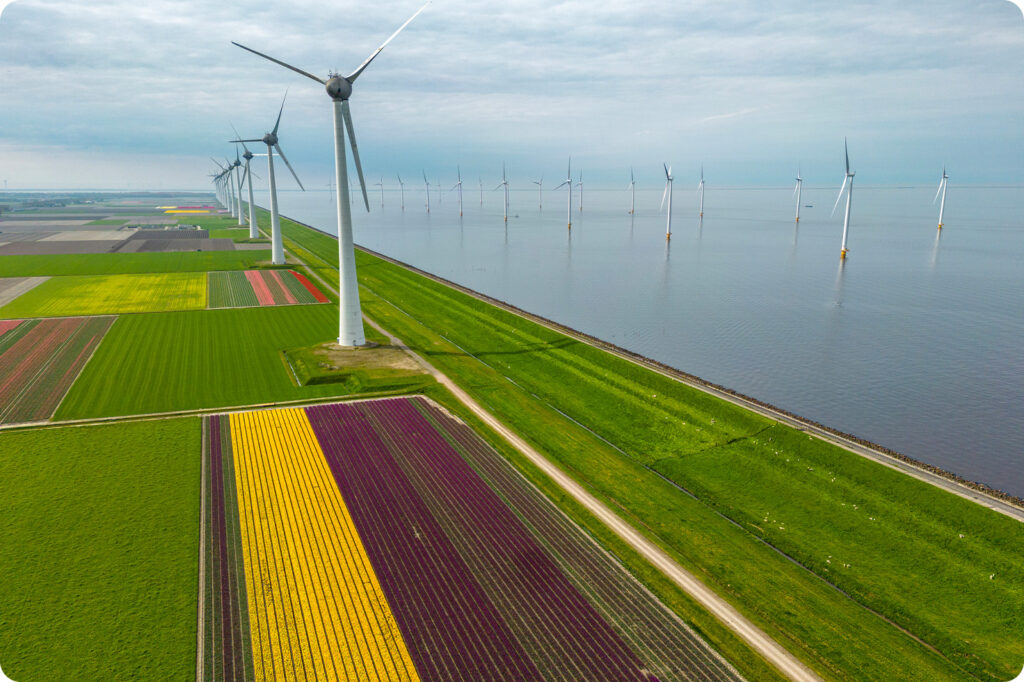The top five climate risk and disclosure stories this week.
Want access to deeper insights and curated climate news? Request a demo of our solution today.
Church of England to divest from oil and gas

The Church of England’s £10.3bn (USD$13.1bn) endowment fund said it will dump investments in oil and gas companies after it concluded that they are not aligned with the Paris Climate Agreement’s goals.
In a statement Thursday, Archbishop of Canterbury Justin Welby, who also chairs the Church Commissioners — the group which oversees the endowment fund — said “not nearly enough” progress has been made by oil and gas majors to phase out fossil fuels and transition to a net-zero world.
The new exclusions will include BP, Ecopetrol, Eni, Equinor, ExxonMobil, Occidental Petroleum, Pemex, Repsol, Sasol, Shell, and Total. Last year, the Church Commissioners excluded 20 oil and gas majors from its investment portfolio.
The divestment decision was triggered following an assessment by the Transition Pathway Initiative (TPI) that shows none of these companies align with the Paris Climate Agreement. By the end of 2023, the fund will also exclude all other companies primarily engaged with oil or gas exploration, production, and refining — unless they demonstrate genuine alignment with a 1.5°C pathway.
However, First Church Estates Commissioner Alan Smith opened the door to future investment in oil and gas if the companies align with the fund’s criteria.
Also on Thursday, the Church of England Pensions Board, which oversees £3.2bn (USD$4.1bn) in assets, said it plans to sell off its holdings in oil major Shell and other fossil fuel giants that aren’t decarbonizing in line with a 1.5°C climate pathway.
Shell announced last week plans to invest a larger share of its annual spend on new oil and gas production. Over the next three years, the company intends to spend USD$40bn on oil and gas, compared with USD$10bn to USD$15bn on clean energy.
Adam Matthews, the Pensions Board’s chief responsible investment officer, wrote on LinkedIn that the asset owner was “deeply disappointed by the steps Shell ha[s] taken to weaken their commitment to previously agreed measures to transition … in line with the goals of the Paris Climate Agreement.”
EU banks push for short-term climate risk analyses

European banks want “meaningful and quantifiable” climate scenario analyses that cover more risks and consider short-term time horizons, a new report says.
The paper, published Thursday by the Association for Financial Markets in Europe (AFME) and Oliver Wyman, examines the challenges that European Union (EU) banks face with regards to climate risk stress testing and offers recommendations for improvement.
These include implementing materiality thresholds so that climate risk assessments are focused on portfolios most likely to be impacted by physical and transition shocks, and establishing a consistent data governance framework and collection guidance to ensure high-quality information is fed into climate analyses.
The paper also highlights findings from a survey of 15 banks. This reveals that most lenders want to see shorter-term climate scenarios, greater regional specificity, and a wider range of scenario variables used. Over two-thirds of respondents want EU watchdogs to focus on the three to five year time horizon in the next regulatory stress test.
In addition, AFME recommends that supervisors design a framework for nature-related risk considerations in line with the Taskforce on Nature-related Financial Disclosures (TNFD) and the Network for Greening the Financial System (NGFS). Notably, more than half of the surveyed banks plan to factor nature-related risks into scenarios over the next two years — if relevant scenarios are put in place by the NGFS.
EFRAG to focus on financial sector sustainability rules

The European Union’s sustainability disclosure standard-setters will create three advisory panels to help develop and maintain sector-specific reporting rules for the banking, capital markets, and insurance sectors.
The panels, announced by the European Financial Reporting Advisory Group (EFRAG) on Monday, will provide guidance and technical input on tailored reporting rules for financial institutions. EFRAG is a private association that advises the European Commission on corporate reporting standards. The Commission put EFRAG in charge of developing the European Sustainability Reporting Standards (ESRS) for companies that fall under Europe’s Corporate Sustainability Reporting Directive (CSRD). These were amended by the Commission and incorporated in draft regulations earlier this month. The regulations are out for public consultation until July 7.
In addition to creating general sustainability reporting standards, EFRAG is also required to prepare sector-specific sustainability standards. Each of the three initial advisory panels — SR Banking, SR Capital Markets, and SR Insurance — will start off focusing on value chain guidance for their respective sectors. They are set to begin work in September.
The panel will have 20 members each, drawn from various fields, including report preparers, auditors, assurance providers, actuaries, users, academics, standard setters, and civil society. Those interested in joining the panels must apply by July 31.
SBTi advances finance sector net-zero guidance

The Science Based Targets Initiative (SBTi) launched a trio of consultations around its forthcoming Financial Institutions Net Zero (FINZ) Standard.
The standard is intended to offer criteria and guidance that empower banks, asset managers, and other financial firms to set credible short- and long-term decarbonization targets that align with 1.5°C climate pathways.
The first consultation covers the FINZ Conceptual Framework and Initial Criteria, which establishes the foundation for the standard. This framework includes SBTi’s definition of what it means for a financial institution to reach net zero at the portfolio level, as well as compulsory criteria on fossil fuel financing activity, among other things.
The second consultation concerns an update to the SBTi’s near-term targets guidance, which describes how financial institutions can align their emissions reduction targets with a 1.5°C trajectory. This marks an increase in ambition from the previous guidance, which was aligned with well-below 2°C pathways. The updated guidance also provides clarifications to improve interpretation and application.
The third consultation covers SBTi’s fossil fuel finance position paper, which outlines near- and long-term criteria for financial institutions’ financing activities in relation to oil, gas, and coal. To achieve climate stabilization, this paper highlights the fact that financial institutions must not support the expansion of new or existing fossil fuel production capacity.
The consultations close on August 14.
Major brands at risk for overstating sustainability

Top companies stand to lose billions in brand value if their sustainability performance does not align with stakeholders’ perceptions, a new study claims.
The data from Brand Finance, a brand valuation consultancy, emphasizes the importance of improving sustainability action and communication when it comes to maximizing brand value — meaning the monetary worth of corporate identities.
The study claims electric vehicles giant Tesla has more than USD$4.1bn of brand value at risk due to discrepancies between its strong sustainability perception and weaker performance in governance and social sustainability measures. On the flipside, Microsoft is alleged to have the highest positive gap value of any brand, with USD$1.5bn in potential brand value to be gained if it communicated its sustainability initiatives and services more effectively.
“Where performance exceeds perception, there is an opportunity to rapidly generate value, by communicating the brand’s genuine commitment to sustainability more effectively,” said Robert Haigh, strategy and sustainability director at Brand Finance. The report recommends brands focus on aligning their sustainability performance with stakeholders’ perceptions to minimize risks and maximize untapped value.
Brand Finance also claims some sectors are more likely to see sustainability drive brand value and consumer choice than others. For example, companies focused on luxury vehicles, soft drinks, groceries, and personal care are more likely to get a boost from positive sustainability perceptions than those focused on tourism, technology, and engineering.

